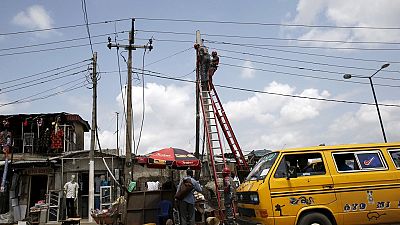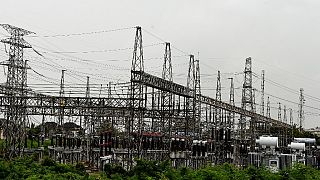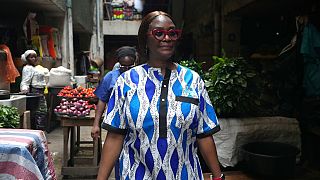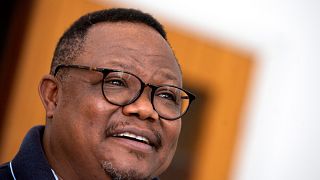Nigeria
Power supply in Nigeria is one of the biggest challenge on investment and growth in Africa’s largest economy. A lot of business people in the country rely on expensive diesel generators for their business and daily activities while a few others stay in darkness.
In a bid to boost power supply, Nigeria in 2013,handed over its distribution firms to private companies but the situation still remains the same.
Prepaid meters were introduced but consumers complained that they (meters) were difficult to get and even when one got them, they did not work properly.
Sule Shuaibu, a welder for eight years said the post paid billing system was inconsistent and unacceptable.
“The metre we are using before got spoilt and they refused to give us another one, you understand they said we should be using bill. That is the only thing but the tariff about the NEPA bill, if you are using metre it will be much better than bill, you pay what you use, it’s not this one that they give you 6,000 (naira) (30 U.S. dollars), give you 10,000 (50 U.S. dollars) today, and give you 11,000 (55 U.S. dollars)” Shuaibu said.
#NoPrepaidmetersnobilling The first problem with the power crisis in Nigeria is being forced to pay whimsically estimated bills. Unjust!
— richard mammah (@richardmammah) February 9, 2016
Organised labour and its civil society allies recently protested against the new Multi-Year Tariff Order (MYTO2015) which took off February 1. The protest paralysed activities at many electricity distribution companies in many cities.
Protesters said the new tariffs will hurt consumers, who are already struggling to pay their bills, while calling for authorities to roll out pre paid meters on a national level.
Nigeria: Protest against 45% electricity tariff hike https://t.co/5QDJFiII45 pic.twitter.com/ei6gZlgEpy
— The Premium Herald (@Premiumherald) February 9, 2016
“We think that the increase is not only outrageous, I think it has not been able to convince us that this increase is actually desirable, one: because of the challenges in the economy, but secondly also because most people are still being billed on estimation, which means majority of consumers have not been able to get metres. Also the increase, the quantum of the increase is not something that Nigerians can actually go by with because it is so outrageous” said NLC president of Nigeria Labour Congress, Aliyu Wabba.
A report released last year by power experts indicates that there is potential for Nigeria to attract tens of billions of dollars of investment into the power sector given the huge demand from industry and the public.
An adviser to the former minister of power, Don Adinuba said the amount of power produced has stagnated over the years.
“The truth is that the power sector is collapsing. You require a lot of investment and if you do not review the tariffs there will not be fresh investments. What Nigerian people have been paying is actually what I may cap under the market value of service that they have been getting. But public sentiments is not in support of that. There are actually a lot of issues we can count on that may be addressed. The usual thing to say is well, give us prepaid metres so that we can pay what we have actually consumed, that is very logical. Unfortunately prepaid metres are not forthcoming,’‘ he said.
If Nigeria gets the lights working it would reduce business costs by up to 40 percent, add 3 percent to GDP (Gross Domestic Product) and spur a boom in labour intensive areas like manufacturing, food processing, textiles and pharmaceuticals.












Go to video
Funeral held in Kenya for TikTok content moderator
01:09
Yinka Shonibare explores identity and hybridity in new Madagascar exhibition
Go to video
Lassa fever kills 118 in Nigeria since the start of the year
Go to video
Pics of the day: March 31, 2025
01:06
Ghana: Nigerian boxer Gabriel Olanrewagu collapses in ring at Bukom arena
Go to video
Pics of the day: March 21, 2025